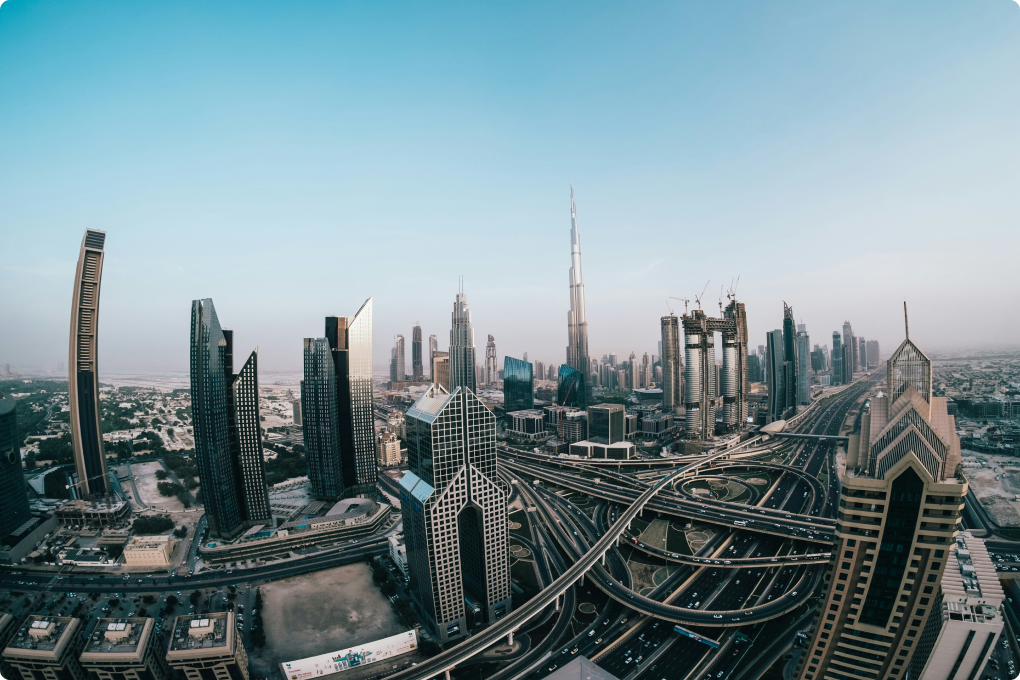Need help for your Engineering Project Contact Us

1. Sustainable and Resilient Design
In a region characterized by extreme climate conditions, sustainability is not just a trend but a necessity. The UAE has set ambitious targets for reducing its carbon footprint, and the architecture sector plays a crucial role in achieving these goals. Abacus Architecture is leading the charge with innovative sustainable design practices.
Key strategies include:
-
Passive Design Principles: Utilizing natural ventilation, shading, and thermal mass to reduce energy consumption.
-
Green Building Materials: Incorporating locally sourced, recyclable, and low-emission materials to minimize environmental impact.
-
Renewable Energy Integration: Implementing solar panels, wind turbines, and energy storage systems to enhance energy efficiency.
These approaches not only reduce operational costs but also contribute to a healthier environment, aligning with national initiatives like the UAE Green Building Council and the Dubai Clean Energy Strategy 2050.
2. Smart Buildings and Internet of Things (IoT)
The future of architecture is smart. In the UAE, smart buildings equipped with IoT technology are becoming increasingly prevalent, offering enhanced convenience, security, and energy efficiency. Abacus Architecture is at the forefront of designing these intelligent structures.
Smart building features include:
-
Automated Systems: Advanced HVAC, lighting, and security systems that adjust based on real-time data.
-
Predictive Maintenance: Sensors and analytics that monitor building systems and predict maintenance needs, reducing downtime and costs.
-
User-Centric Design: Personalized environments that adapt to the preferences and needs of occupants.
These technologies not only improve the quality of life for residents and workers but also optimize building performance, making them a key component of modern architecture in the UAE.
3. 3D Printing and Modular Construction
The advent of 3D printing and modular construction is revolutionizing the way buildings are designed and constructed. These technologies offer significant advantages in terms of speed, cost, and customization, making them particularly appealing in a fast-paced market like the UAE.
-
3D Printing: This technology allows for the creation of complex architectural elements with high precision and minimal waste. Abacus Architecture is exploring its potential for producing bespoke components, façade elements, and even entire building structures.
-
Modular Construction: Prefabricated modules are constructed off-site and then assembled on-site, drastically reducing construction time and labor costs. This method is especially beneficial in the UAE, where rapid urbanization and high demand for new buildings require efficient and scalable solutions.
4. Parametric and Computational Design
Parametric design is transforming architectural aesthetics and functionality by leveraging algorithms and data to create complex, optimized structures. In the UAE, where iconic and futuristic architecture is a hallmark, parametric design is gaining traction.
Applications include:
-
Optimized Building Performance: Design elements that adapt to environmental conditions, such as wind patterns and solar exposure, enhancing energy efficiency.
-
Innovative Aesthetics: Unique and intricate forms that are difficult to achieve with traditional design methods, contributing to the UAE's iconic skyline.
Abacus Architecture utilizes parametric tools to explore new architectural possibilities, pushing the boundaries of creativity and efficiency.

5. Virtual and Augmented Reality (VR/AR)
VR and AR technologies are revolutionizing the design process, offering immersive experiences that allow clients to visualize projects before they are built. In the UAE, where high-profile projects require meticulous planning and client involvement, these technologies are invaluable.
Benefits include:
-
Enhanced Visualization: Clients can explore virtual models, making it easier to understand design concepts and make informed decisions.
-
Improved Collaboration: Architects, engineers, and stakeholders can collaborate more effectively by interacting with 3D models in real time.
-
Streamlined Design Iteration: Changes can be visualized and implemented quickly, reducing the time and cost associated with design modifications.
6. Adaptive and Responsive Architecture
The UAE's unique environmental challenges, including high temperatures and scarce water resources, require adaptive and responsive architectural solutions. Abacus Architecture is pioneering designs that not only withstand these challenges but also adapt to changing conditions.
Key features include:
-
Dynamic Facades: Building exteriors that adjust to optimize daylight, reduce heat gain, and enhance indoor comfort.
-
Water Conservation Systems: Innovative systems that recycle greywater, harvest rainwater, and utilize desalination technologies to reduce water consumption.
-
Flexible Spaces: Interior layouts that can be easily reconfigured to accommodate changing needs, such as remote work or evolving family dynamics.
These adaptive strategies ensure that buildings remain functional, comfortable, and sustainable over their lifecycle, aligning with the UAE's vision for a resilient and sustainable built environment.
Conclusion
The future of architecture is being shaped by groundbreaking technologies and forward-thinking design principles. Abacus Architecture, as a leading firm in Abu Dhabi, is committed to embracing these innovations to create spaces that are not only beautiful and functional but also sustainable and resilient. As the UAE continues to grow and evolve, the role of architects in shaping the built environment becomes ever more crucial. By staying at the forefront of these trends, Abacus Architecture, in collaboration with EMRA General Contracting, is poised to lead the way in designing the future of architecture in the UAE and beyond.
